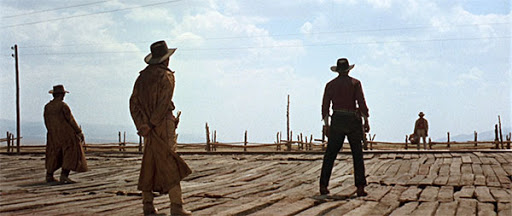
Spaghetti Western Music
When we think about cowboys, it’s hard not to hear that classic western music inside our heads, the whistles, well placed guitars, banjos, harmonicas and much more. The truth is that all of this comes from spaghetti westerns which became a big thing around the 1960s. These westerns were special, they were produced and directed by italians, which is why they got their name.
These stories had very emotional journeys surrounding all the chaos of the wild west, some about tragic heroes like “Django”, others about nameless gunslingers and betrayals like “A Fistful of Dollars”.
To acompany these stories, music was a very important part, not only to provide a general feeling, but to envourage the narrative and the wild but very human stories of the westerns.
“Cowboy” Music
The origin of this type of music is not a work of fiction, in other words, what we see in those famous Clint Eastwood movies, was not a genre born in cinema, it was actually a genre that began in the mid 19th century, which by the way was still the time of the wild west.
The interesting thing about it is that, while it’s a very American thing in many ways, it is a genre that came to be from the combination of many cultures including Spanish, Celtic and more. All of this combined with the close relation between Mexico and the United States, cowboy music and poetry was born, and in a way paved the way to the romanticizing of cowboys, outlaws and indians in the western frontier.
Ennio Morricone

One of the most reknown composers in this genre was Ennio Morricone. To understand him more, he talked a bit about his influences in an 1984 interview with Sue Adler.
Stravinsky is an extremely important composer, because of what he put into his music, because of the positive force with which he always imbued his sounds, and because of his clawing, trenchant creativity and the way in which he acquired folkloric influences of Russia at that time and used them. He is one of the fundamental composers of contemporary music.
My maestro, Goffredo Petrassi, and several other composers — Stockhausen, Boulez, Nono, Berrio, Palestrina and Monteverdi, and Bach (another one I adore) — all have left very positive marks in the course of my musical development. These composers are part of me, in that I have digested and filtered them. I can quite easily reproduce them, but in a manner completely revised by my non- passivity towards them.
One’s taste derives from the influences of these composers; the things one loves; everyday occurrences; contemporary music; and childhood memories. These form experience and experience forms technique, and from technique comes style; they come unconsciously and are therefore beyond our control. So I, and others, write in a certain way and only other people can define it. Maybe in years to come I will be able to hazard an appraisal of my production, artistically and technically. But I don’t have the time to stop and reflect on things I have already done. I have to think of the future.
Morricone managed to capture a certain feeling with Westerns like no one else did, with big dramatic peaks and heavy lows that drew the spectator in through the eyes of the protagonist.
When Morricone began working with Sergio Leone, some of the greatest magic in movie history was made, and it was in part duo to the fact that the music used in the film, was not added in post production, it was actually played on set, and the actors listened to the music as they played their parts. This whole idea made the experience quite surreal, and very unique.
Although he has made history with movie soundtracks, more specifically “spaghetti westerns” he says he is capable of making many types of music from jazz to classical and he should be recognized as an amazing musician rather than just an amazing soundtrack composer.
